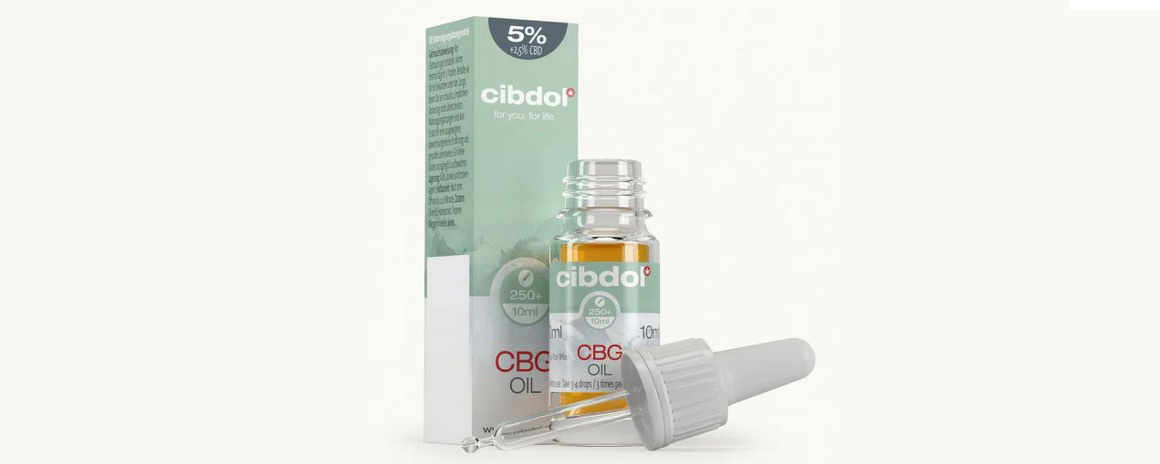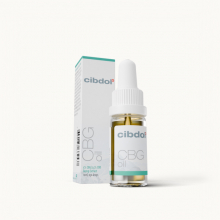Can CBG Sober You Up From THC?
Published:
As interest grows around supplemental cannabinoids like CBG, some users are exploring whether CBG can help provide sobering effects from THC, the main intoxicating compound in cannabis.
Contents:
But does CBG actually help sober you up and counteract the high from THC? Let’s objectively examine the limited evidence.

An Introduction to CBG
First, a quick primer on CBG itself. CBG stands for cannabigerol, considered a “minor cannabinoid” because it occurs in relatively low levels in cannabis plants compared to CBD and THC.
However, new production techniques allow for extraction of CBG into oils, capsules, topicals and other hemp-derived supplements.
Early research suggests CBG offers potential wellness benefits like:
- Reduced pain and inflammation
- Neuroprotective effects
- Improved sleep quality
- Anti-anxiety properties
- Enhanced mood
- Antibacterial qualities
Unlike THC, CBG is non-intoxicating and does not cause impairment or euphoric effects. But can CBG counteract THC intoxication and provide sobering benefits? Current evidence is very limited.
Analyzing the Limited Evidence on CBG for Sobering
Presently, no studies have directly tested or confirmed whether CBG reverses the intoxicating effects of THC in humans. However, some preliminary evidence proposes potential sobering mechanisms:
- CBG may compete with THC for binding at CB1 receptors, theoretically blocking some intoxicating effects.
- CBG elevates anandamide, an endocannabinoid that regulates CB1 signaling involved in THC impairment.
- CBG’s influences on serotonin may counteract some mood-altering effects of THC intoxication.
While a plausible theoretical basis exists, no controlled studies confirm CBG conclusively sobers or reverses impairment from THC compared to placebo when directly tested. Claims stating otherwise lack substantiation currently.
Currently Unproven Sobering Claims About CBG
In the absence of direct clinical evidence, claims that CBG delivers the following specific sobering benefits remain unproven:
- Directly counteracting cognitive effects of THC like impaired memory or judgment
- Blocking psychoactive influences of THC on mood, thoughts, or perceptions
- Quickly reducing motor impairment from THC
- Rapidly clearing THC from the bloodstream or tissues
- Neutralizing anxiety sometimes caused by THC
- Quickly reducing eye bloodshot effects of THC
Well-designed clinical trials directly comparing CBG to placebo for sobering impacts on THC intoxication would be needed to support such specific claims about counteracting impairment.
Potential Drawbacks of Relying on CBG for Sobering
While generally well-tolerated, using CBG specifically to try counteracting THC intoxication carries some potential drawbacks:
- False sense of sobriety, leading to impaired judgment or motor function
- Unrealistic dependence on CBG instead of waiting for THC effects to naturally clear
- Increased sedation if CBG dosage is excessive
- Avoiding developing natural THC tolerance through responsible cannabis use
- Needlessly increasing supplement consumption by adding CBG on top of THC
The limitations and uncertain sobering benefits of CBG warrant consideration before relying on it as an antidote to THC. Sober judgment remains critical.
Suggestions for Using CBG Products With THC
Those choosing to pair CBG with THC should keep these tips in mind:
- Avoid excessive THC doses instead of expecting CBG to fully counteract effects
- Do not drive or operate heavy machinery when combining THC and CBG
- Monitor yourself and environment to judge functional effects objectively
- Have safe ride options available in case CBG does not sufficiently sober you
- Limit mixing CBG with THC until familiar with your reactions
- Consider lower risk cannabis formats like edibles instead of inhaled products
- Use CBG on its own during daytime hours for productivity
The wisest approach involves responsible THC use that doesn’t require sobering remedies like CBG. But when co-using, exercise cautious judgment.
Can CBG sober you up From THC? Conclusion
Claims that supplemental CBG can counteract, sober, or reverse the intoxicating effects of THC are currently unsupported due to a lack of direct clinical evidence from sober-simulating studies specifically comparing CBG to placebo.
However, preliminary research does provide a theoretical basis for how CBG could potentially influence THC impairment through receptor interactions and endocannabinoid signaling modulation.
Controlled human trials are still needed to conclusively determine if CBG mitigates issues like cognitive fog, psychotropic changes, and motor deficits induced by THC compared to a non-CBG control condition.
Until such direct sobering benefits are proven, individuals should avoid relying on CBG as a catch-all remedy to THC impairment, and instead focus on moderating THC dosage and allowing time for sober clearance.
But the initial research on CBG does suggest it likely offers a favorable safety profile with low risk of adverse effects if used responsibly alongside THC. Further studies mapping CBG's complex pharmacological interactions with THC should uncover more definitive answers around any potential sobering advantages.
Resources used to write this article
- Hložek, T., Uttl, L., Kadeřábek, L., Balíková, M., Lhotková, E., Horsley, R.R., Nováková, P., Šíchová, K., Kubů, M., Kolář, P., Filip, M. (2017). Pharmacokinetic and behavioural profile of THC, CBD, and THC+CBD combination after pulmonary, oral, and subcutaneous administration in rats and confirmation of conversion in vivo of CBD to THC. European Neuropsychopharmacology, 27(12), 1236-1248. https://doi.org/10.1016/j.euroneuro.2017.09.010
- Russo, E.B. (2011). Taming THC: potential cannabis synergy and phytocannabinoid-terpenoid entourage effects. British Journal of Pharmacology, 163(7), 1344-1364. https://doi.org/10.1111/j.1476-5381.2011.01238.x
- De Petrocellis, L., Ligresti, A., Moriello, A.S., Allarà, M., Bisogno, T., Petrosino, S., Stott, C.G., Di Marzo, V. (2011). Effects of cannabinoids and cannabinoid-enriched Cannabis extracts on TRP channels and endocannabinoid metabolic enzymes. British Journal of Pharmacology, 163(7), 1479-1494. https://doi.org/10.1111/j.1476-5381.2010.01166.x
- Farrimond, J.A., Whalley, B.J., Williams, C.M. (2011). Cannabinol and cannabidiol exert opposing effects on rat feeding patterns. Psychopharmacology, 223(1), 117-129. https://doi.org/10.1007/s00213-011-2432-x
- Rong, C., Lee, Y., Carmona, N.E., Cha, D.S., Ragguett, R.M., Rosenblat, J.D., Mansur, R.B., Ho, R.C., McIntyre, R.S. (2018). Cannabidiol in medical marijuana: Research vistas and potential opportunities. Pharmacological Research, 130, 214-221. https://doi.org/10.1016/j.phrs.2017.12.005










